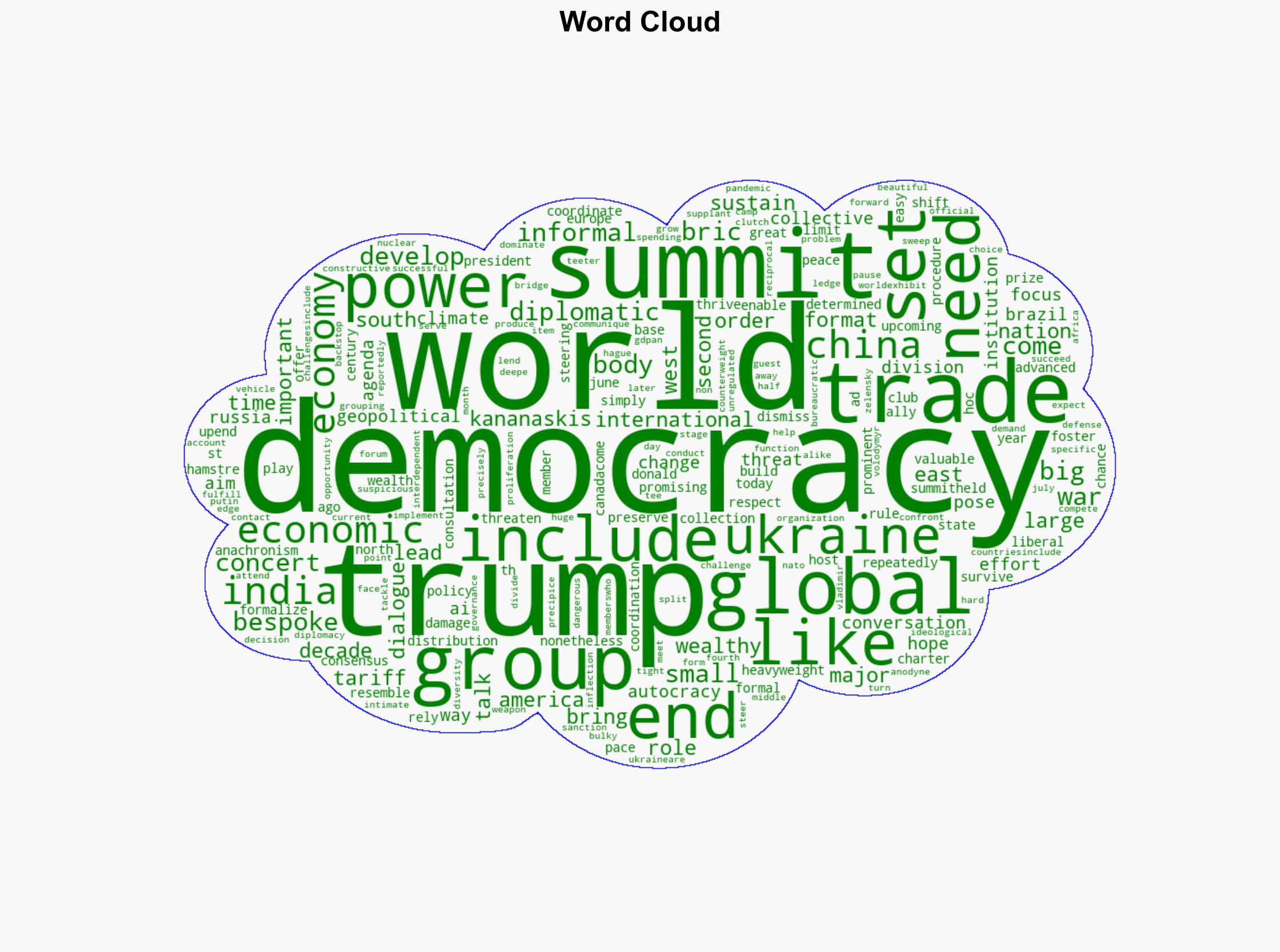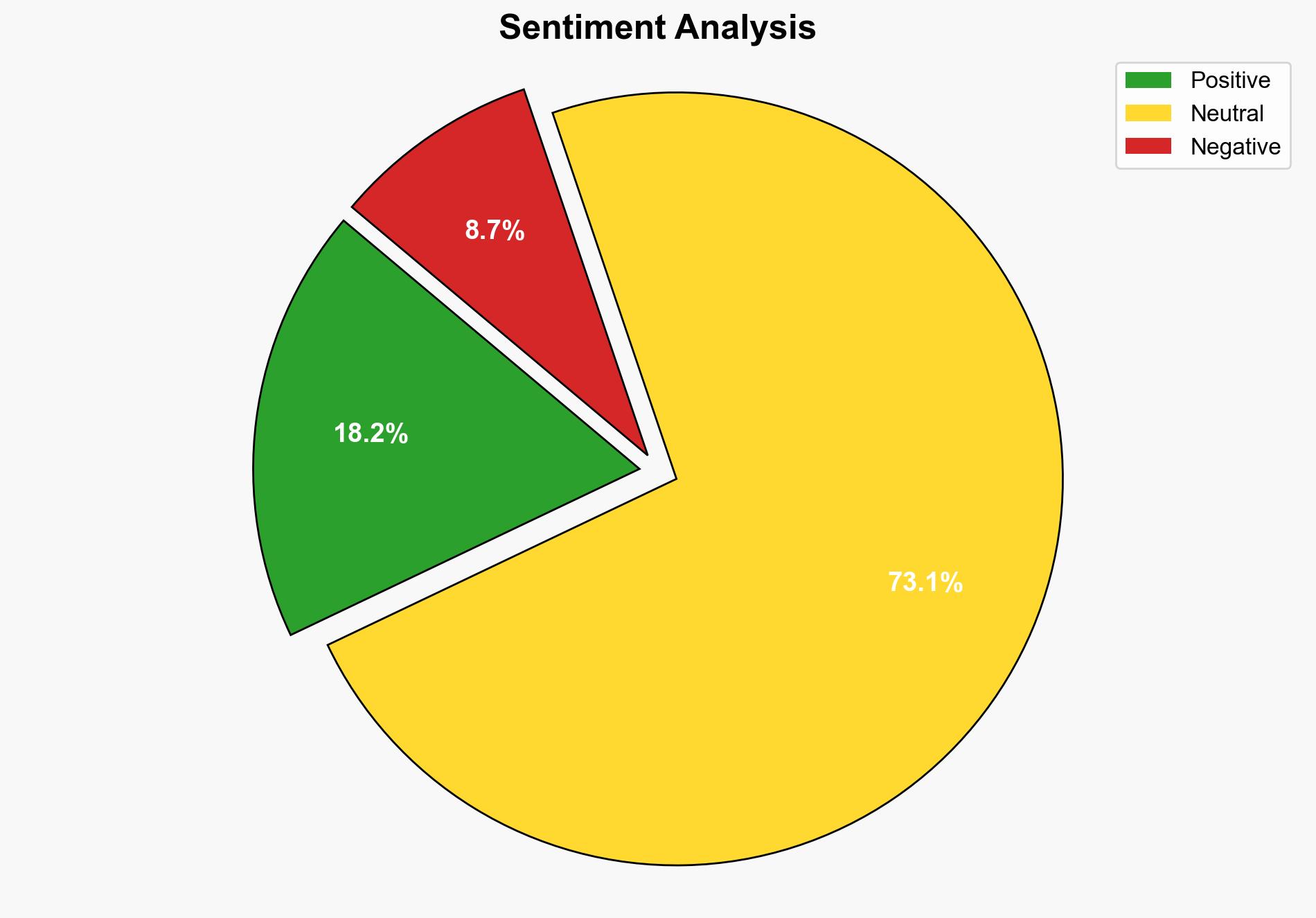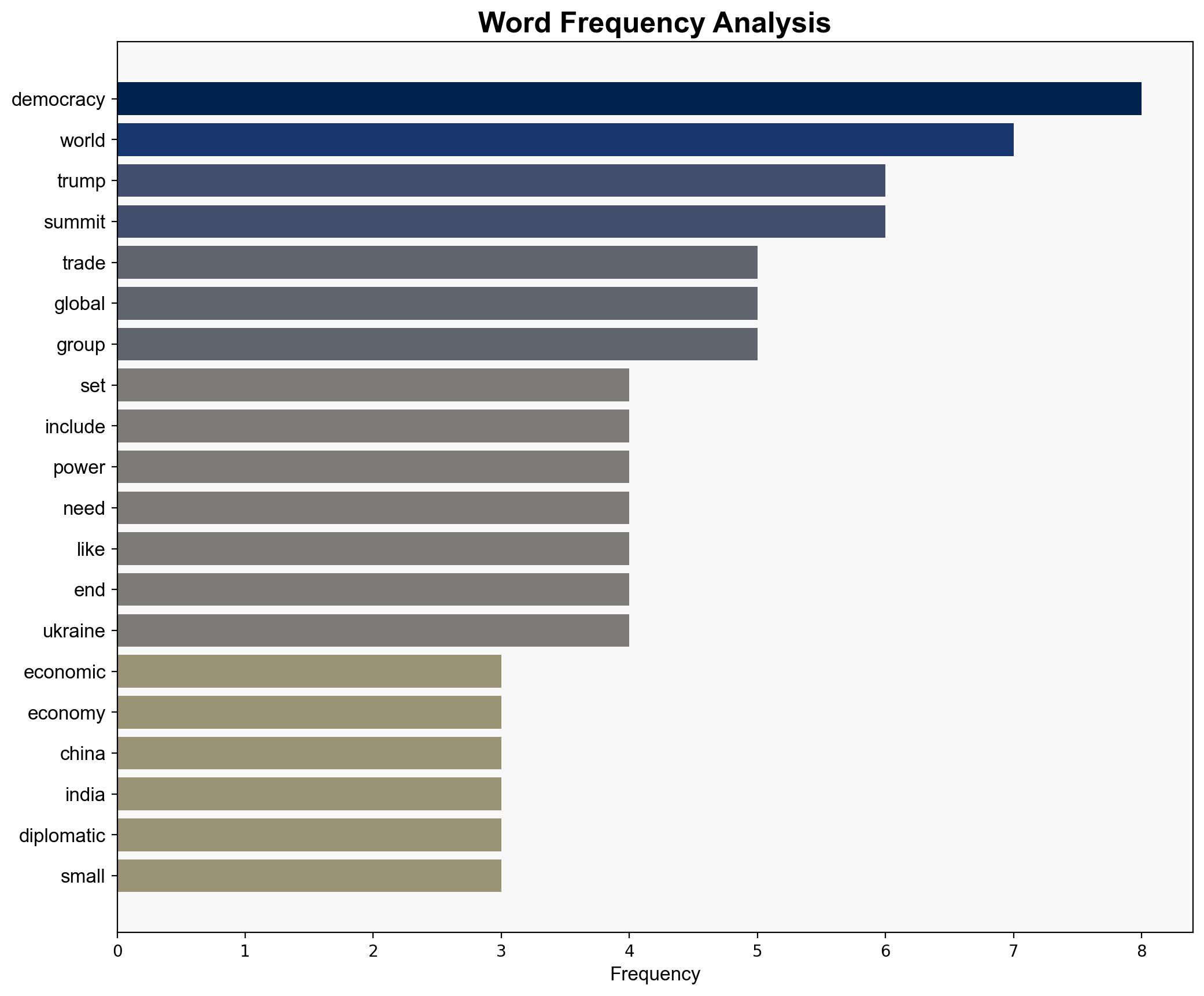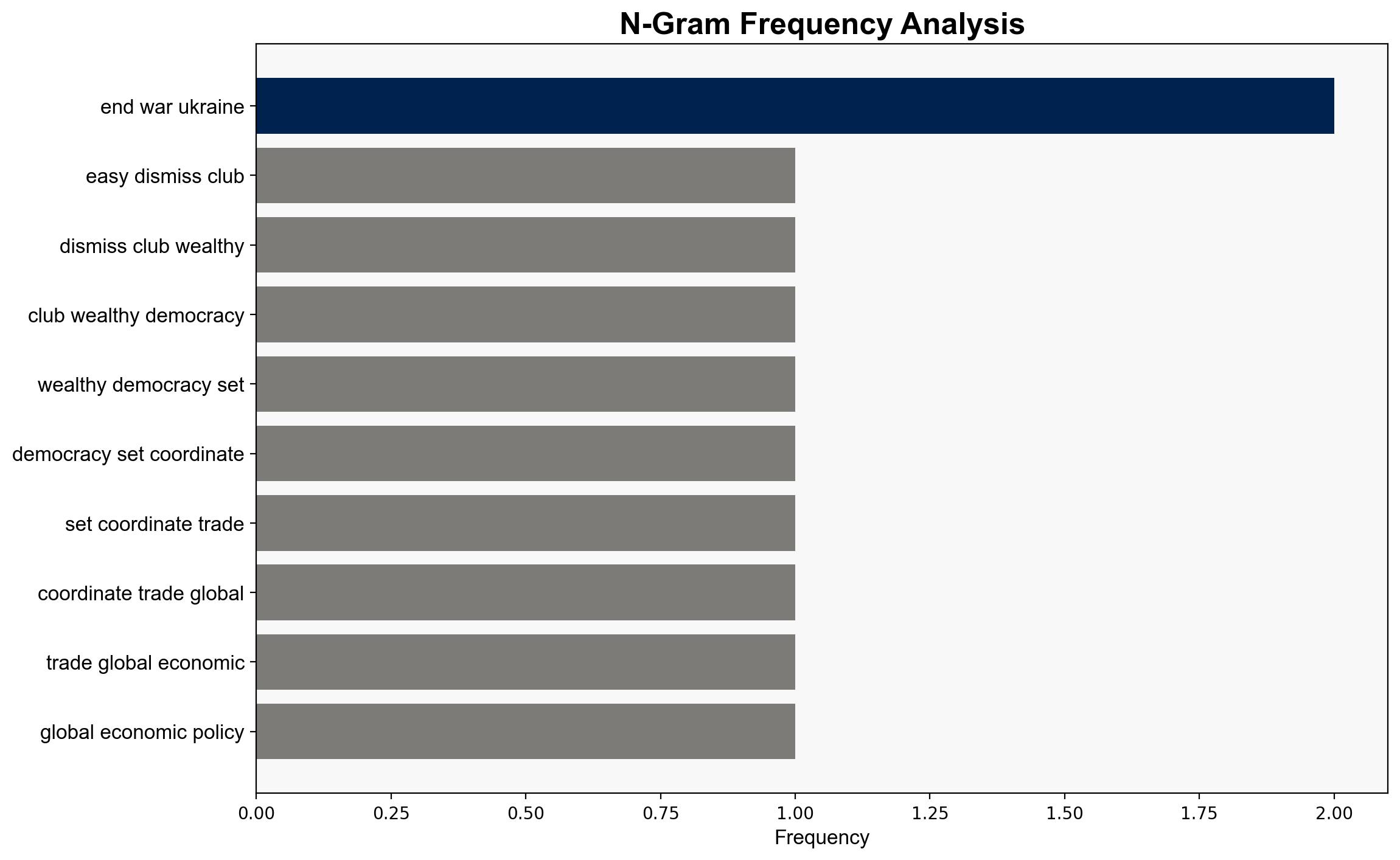The G-7 Is Outdated But It Still Matters – Time
Published on: 2025-06-14
Intelligence Report: The G-7 Is Outdated But It Still Matters – Time
1. BLUF (Bottom Line Up Front)
The G-7, despite its outdated composition, remains a crucial diplomatic platform for addressing global challenges. It offers a unique setting for dialogue among major democracies, facilitating consensus on pressing issues such as economic policy, climate change, and geopolitical tensions. The summit’s informal nature allows for more flexible and intimate discussions, which are essential in an increasingly complex international landscape. Recommendations include leveraging the G-7’s format to address emerging threats and fostering cooperation with non-member states to enhance global governance.
2. Detailed Analysis
The following structured analytic techniques have been applied to ensure methodological consistency:
Causal Layered Analysis (CLA)
Surface events highlight the G-7’s struggle to remain relevant amid shifting global power dynamics. Systemic structures reveal the need for reform to include emerging economies like China and India. Worldviews emphasize the ideological divide between democracies and autocracies, while myths underscore the perceived obsolescence of traditional power blocs.
Cross-Impact Simulation
Potential ripple effects include increased geopolitical tensions if the G-7 fails to adapt, potentially leading to the rise of alternative coalitions such as BRICS. Economic dependencies could shift as countries seek new alliances, impacting global trade and stability.
Scenario Generation
Plausible futures include the G-7 evolving into a more inclusive body, maintaining its current structure but losing influence, or being supplanted by new multilateral frameworks. Each scenario presents distinct challenges and opportunities for global governance.
3. Implications and Strategic Risks
The G-7’s current structure poses risks of marginalization in global decision-making. Emerging threats include the potential for increased geopolitical fragmentation and the inability to effectively address transnational issues like climate change and cybersecurity. Systemic vulnerabilities may arise from the exclusion of key global players, leading to parallel power structures that undermine existing institutions.
4. Recommendations and Outlook
- Enhance the G-7’s inclusivity by engaging with non-member states to address global challenges collaboratively.
- Leverage the summit’s informal nature to facilitate dialogue on contentious issues, reducing the risk of geopolitical fragmentation.
- Scenario-based projections suggest that adapting the G-7 to reflect current global realities is the most sustainable path forward.
5. Key Individuals and Entities
Donald Trump, Vladimir Putin, Volodymyr Zelensky
6. Thematic Tags
global governance, geopolitical dynamics, economic policy, climate change, international diplomacy




